Study in France for Indian Students
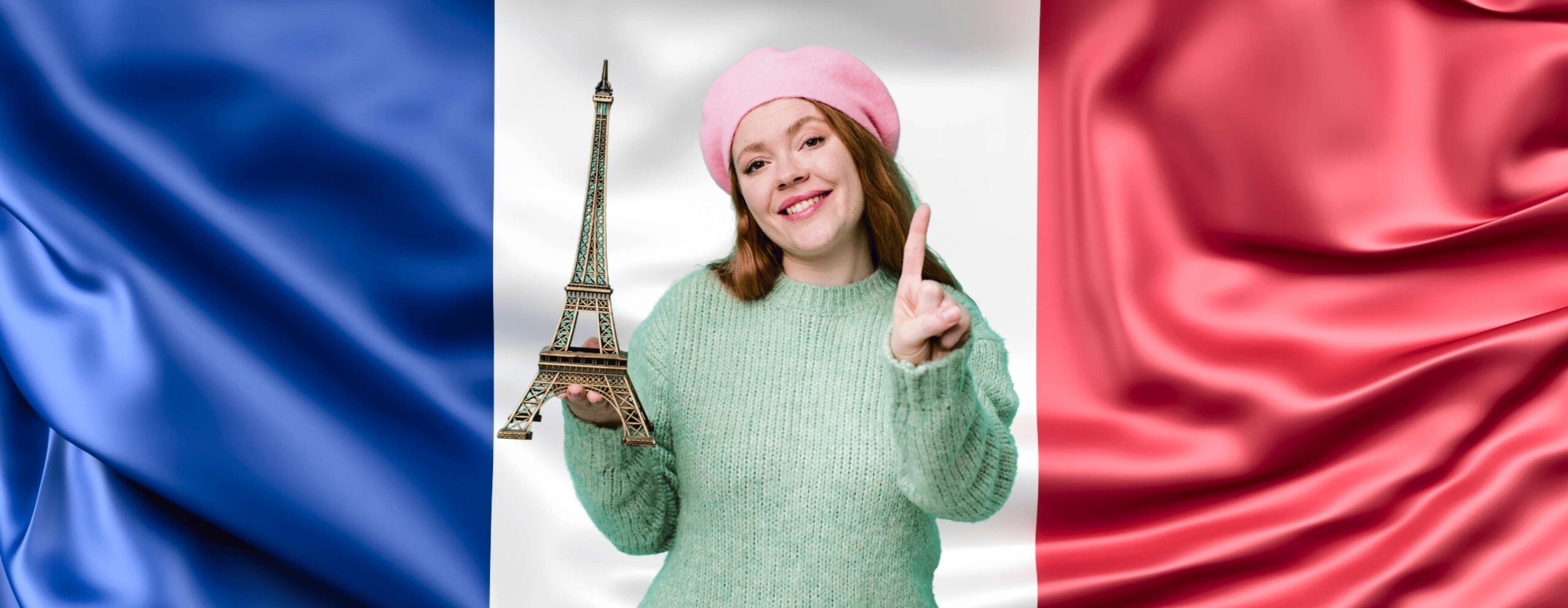
Studying in France is an excellent opportunity for Indian students seeking high-quality education, diverse cultural experiences, and access to global career opportunities. France is home to some of the world’s most prestigious universities, business schools, and research institutions, making it an attractive destination for students worldwide. Here’s a comprehensive guide to help Indian students understand the process, benefits, and requirements for studying in France.
Why Study in France?
- High-Quality Education: France is known for its academic excellence, especially in fields such as engineering, business, arts, fashion, design, social sciences, and humanities. The country is home to prestigious institutions like Sorbonne University, École Normale Supérieure (ENS), HEC Paris, INSEAD, and École Polytechnique. French higher education institutions are recognized globally for their rigorous academic standards and research output.
- Affordable Tuition Fees: Tuition fees in France are relatively low compared to other study destinations like the U.S. and the UK. Public universities in France charge nominal fees, typically ranging from €200 to €500 per year for undergraduate programs, and €300 to €1,000 for master’s programs. For certain specialized courses (like business schools or private institutions), fees may be higher but still remain competitive compared to other countries.
- Cultural and Linguistic Experience: France offers a unique cultural experience with its rich history, art, architecture, cuisine, and lifestyle. For students interested in the French language, studying in France provides the ideal opportunity to improve language skills while immersing in the culture. Moreover, many programs are now available in English, especially at the graduate level, making it accessible to international students.
- Post-Graduation Work Opportunities: After completing your studies, international students in France can apply for a temporary resident permit that allows them to stay and work in France for up to two years (for a master’s degree or higher). This is an excellent opportunity to gain professional experience in France or the European Union and increase your chances of securing long-term employment.
- Career Opportunities and Networking: France is home to some of the world’s leading companies, especially in finance, luxury goods, fashion, automotive, and technology sectors. Universities and business schools have strong ties with industry leaders, and students often have access to internships, job fairs, and career counseling services to boost their employability.
- Diverse International Student Population: France hosts a large number of international students, making it a multicultural and diverse environment. This offers a great opportunity to network with students from around the world and build lifelong friendships.
Eligibility Requirements for Indian Students
1. Academic Qualifications:
- Undergraduate Programs: To apply for an undergraduate program, you must have completed 12th grade (higher secondary education) from a recognized Indian board. For admission to public universities, you generally need a minimum of 50%-60% in your 12th-grade exams, depending on the university and course.
- Postgraduate Programs: For a master's degree, you need a bachelor’s degree from a recognized Indian university. You should have an overall grade of 50%-70% in your undergraduate degree, depending on the program. For competitive fields like business, engineering, or management, higher academic performance may be required.
2. Language Proficiency:
While many programs, especially at the master’s level, are available in English, knowledge of the French language is highly advantageous. Some universities may require proof of proficiency in French for admission to programs taught in French. If you are applying to English-taught programs, the language requirements generally include:
- IELTS: A score of 6.0 to 7.0 depending on the program.
- TOEFL: A score of 80 to 100 is usually required for undergraduate and postgraduate courses.
- PTE: Scores typically between 50 and 70 for English-taught programs.
If you are applying for a French-taught program, you will need to demonstrate proficiency in the French language, often through DELF (Diplôme d’Études en Langue Française) or DALF (Diplôme Approfondi de Langue Française) exams. The required level is generally B2 for undergraduate courses and C1 for postgraduate courses.
3. Visa Requirements:
To study in France, Indian students need a Student Visa. The process involves the following steps:
- Acceptance Letter (Attestation d’Inscription): After receiving an offer from a French institution, you will need an official acceptance letter or Attestation d’Inscription.
- Visa Application: Once you receive your acceptance letter, you can apply for a student visa (known as a VLS-TS visa) through the Campus France website or French consulates in India. You will need to provide:
A valid passport.
Proof of acceptance into a recognized educational institution.
Proof of sufficient funds to cover tuition and living expenses (around €615 per month for living costs).
Proof of health insurance coverage.
Evidence of accommodation arrangements.
Proof of your academic qualifications.
4. Health Insurance:
- All international students in France must have health insurance. France provides a public health insurance system for students through the French Social Security system. This is generally free for students below 28 years of age. However, if you are over 28, you may need to purchase private health insurance. Students are also encouraged to have additional private health insurance to cover supplementary medical costs.
Application Process
1. Research and Choose a Program:
- Start by researching your options. France offers a broad range of programs in fields such as engineering, business, arts, social sciences, humanities, and sciences.
- Use websites like Campus France to explore universities, degree programs, application requirements, and deadlines.
2. Prepare Documents:
- Academic Transcripts (12th-grade marks for undergrad, bachelor’s degree for postgrad)
- Language Proficiency Scores (IELTS/TOEFL/PTE/DELF)
- Curriculum Vitae (CV)
- Letters of Recommendation (LORs)
- Statement of Purpose (SOP)
- Passport Copy
- Proof of Funds (bank statements, financial guarantees)
- Health Insurance
3. Submit Applications:
Submit your application directly to the university or through Campus France, the official French government website for international students. Many French universities now require students to apply through Campus France, which streamlines the process.
4. Wait for Acceptance:
After submitting your application, universities typically take 1-3 months to process and send an acceptance letter.
5. Apply for a Student Visa:
Once you receive your Letter of Acceptance, apply for your student visa through Campus France or the French consulate. You may also need to provide biometric data (fingerprints and photo) during the application process.
6. Accommodation and Travel:
- Look for student housing through university accommodation services or external rental platforms. Be sure to book your accommodation in advance.
- Once your visa is approved, book your flights and prepare for travel to France.
7. Accommodation and Travel:
After your visa is approved, start looking for accommodation. You can choose between on-campus housing, student residences, or private rentals. Once you’ve secured accommodation, you can book your flight to Canada.
Cost of Studying and Living in France

1. Tuition Fees:
- Public Universities: Undergraduate programs: €200 to €700 per year.
- Master’s programs: €300 to €1,000 per year.
- Private Universities and Business Schools: Undergraduate and Postgraduate programs: €5,000 to €20,000 per year, depending on the program (especially business schools and specialized courses).
2. Living Expenses:
The cost of living in France varies by city, but the average monthly expenses are between €800 and €1,200 per month. Major cities like Paris are more expensive, while smaller cities and towns tend to be cheaper.
- Accommodation: €300 to €700 per month (student housing or shared apartments)
- Food: €200 to €400 per month
- Transportation: €30 to €80 per month (depending on the city)
- Miscellaneous Expenses: €100 to €200 per month
Note: Students can save money by living in university residences, using student discounts, and managing their budgets carefully.


3. Scholarships:
Several scholarships are available for international students in France, including:
- Eiffel Excellence Scholarship Program: For top international students pursuing a master’s or doctoral degree.
- Emile-Boutmy Scholarship: For non-EU students applying to Sciences Po.
- Charpak Scholarship: A government-sponsored scholarship for Indian students.
Check the university or Campus France website for other scholarships available to international students.

Post-Graduation Opportunities and Pathways to Stay in France
1. Postgraduate Work Permit:
After completing your studies in France, you can apply for a Temporary Resident Permit (APS), which allows you to stay in France for up to 12 months to search for a job or start a business.
If you have a job offer in a related field, you may be eligible for a work permit and, eventually, permanent residency.
2. Permanent Residency (PR):
After working in France for a certain period, you can apply for permanent residency. The requirements include having a stable job, fulfilling residency requirements, and integrating into French society.
University List

SKEMA Business School - Sophia Antipolis
valbonne, France

Skema Business School - Lille
Lille, France

SKEMA Business School Paris
Paris, France

Rennes School of Business
Brittany, France

NEOMA Business School
Rouen, France

KEDGE Business School
Aquitaine, France

Montpellier Business School
Montpellier, France

ISC Paris
Paris, France

American Business School
Paris, France

EPITA School of Engineering and Computer Science
Paris, France
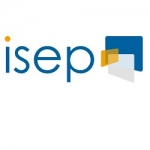
ISEP
Paris, France

Esaip School Engineers
Pays de la Loire, France

IMT Atlantique
Nantes, France

Toulouse Business School
Midi Pyrenees, France

EDC Paris Business School
Paris, France

ESLSCA Business School
Paris, France

INSEEC Business School
Paris, France

VATEL International Business School, Hotel and Tourism Management
Nimes, France

Sports Management School
Paris / Ill de France, France

EICAR
Paris, France

IPSA
Paris / Ill de France, France

Leonard De Vinci
Paris, France

Cy tech
Poitou Charente, France

Excelia Group
Aquitaine, France

ISG International Business School
Paris, France
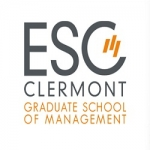
ESC Clermont
Paris, France

ESC Bretagne Brest
Brest, France

ModArt
Paris, France
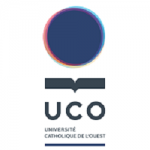
UCO
Pays de la Loire, France

PSL Research University
Paris, France

ESSCA Graduate School of Management
Pays de la Loire, France

IESA International
Paris, France
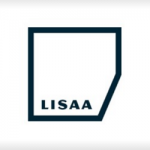
LISAA School of Design, France
Paris, France

Le Cordon Bleu Paris
Paris, France

Grenoble Institute of Technology
Grenoble, France

Strate School of Design
Sevres, France
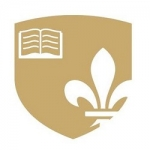
COLLEGE DE PARIS
Paris, France

Speos Photo and Video School
Paris, France

ESGCI
Paris, France

Cours Florent
Paris, France

ECOLE DUCASSE
Paris / Ill de France, France

Sup de Pub
Paris, France

Ipi Paris Computer Science School
Paris, France

Aivancity School for Technology Business and Society
Paris, France

ESRA
Paris, France
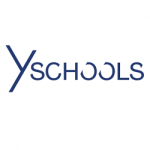
Y Schools
Saint-Etienne, France

AURA International School of Management
Lyon, France

IMT Mines Ales
Ales, France

Ecole centrale de Marseille
Aix-en-Provence, France

ISTEC
Paris, France

EMA | ECOLE DE MANAGEMENT APPLIQUE
Paris, France
Conclusion
Studying in France offers Indian students an affordable, high-quality educational experience with the potential for significant cultural enrichment. With a strong academic reputation, a variety of courses, and ample post-graduation opportunities, France continues to be a top choice for international students. By following the right application procedures, meeting language requirements, and preparing financially, Indian students can unlock numerous opportunities in one of Europe’s most dynamic and culturally rich countries.

